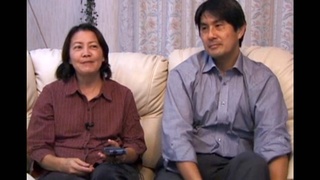Interviews
Lack of notion of citizenship in Japan
Japanese people don’t understand about citizenship. Even if I say I’m a Japanese American, they’ll say, “Your parents are Japanese. You’re a Japanese.” Because the law is different, I think. So you look Japanese. Even if you say, “Yeah, I’m American,” most Japanese, typical Japanese, I think they don’t have the concept of what a Nisei is or a foreign American citizen. Because in Japan, there’s many Korean people—Nisei, Sansei—but they never, I think it’s not because of the law, but they don’t want to be Japanese Korean. Second generation, third generation, they say “Japanese-residing Korean.” So, in some sense, I think there is no concept of citizenship like American—born in the States, you are an American.
Date: September 11, 2003
Location: Tokyo, Japan
Interviewer: Art Nomura
Contributed by: Art Nomura, Finding Home.
Explore More Videos

Grandmother's influence on decision to go to Japan
(b.1942) Japanese American ceramist, who has lived in Japan for over 30 years.

A Possible Path towards Happiness… (Spanish)
(1958-2014) Former Bolivian Ambassador to Japan

I’m American, but my home is Japan
(b. 1967) Hawai`i-born professional fighter in Japan

Being a Japanese American in Japan
Japanese American Creative designer living in Japan

Buddhism in America and Japan
(b.1942) Japanese American ceramist, who has lived in Japan for over 30 years.

What is Nikkei? (Japanese)
Tsuda College President, researcher of Nikkei history

Learning from Nikkei (Japanese)
Tsuda College President, researcher of Nikkei history

Experiences in Japan and its influence
Hawaii born Nikkei living in Japan with her family.

Nickname
(1926 - 2012) Scholar and professor of anthropology. Leader in the establishment of ethnic studies as an academic discipline

Context affects meaning
(1926 - 2012) Scholar and professor of anthropology. Leader in the establishment of ethnic studies as an academic discipline

Testing assumptions of Japanese scholars
(1926 - 2012) Scholar and professor of anthropology. Leader in the establishment of ethnic studies as an academic discipline




Feeling empowered by taiko
Co-founder and creative director of San Jose Taiko
